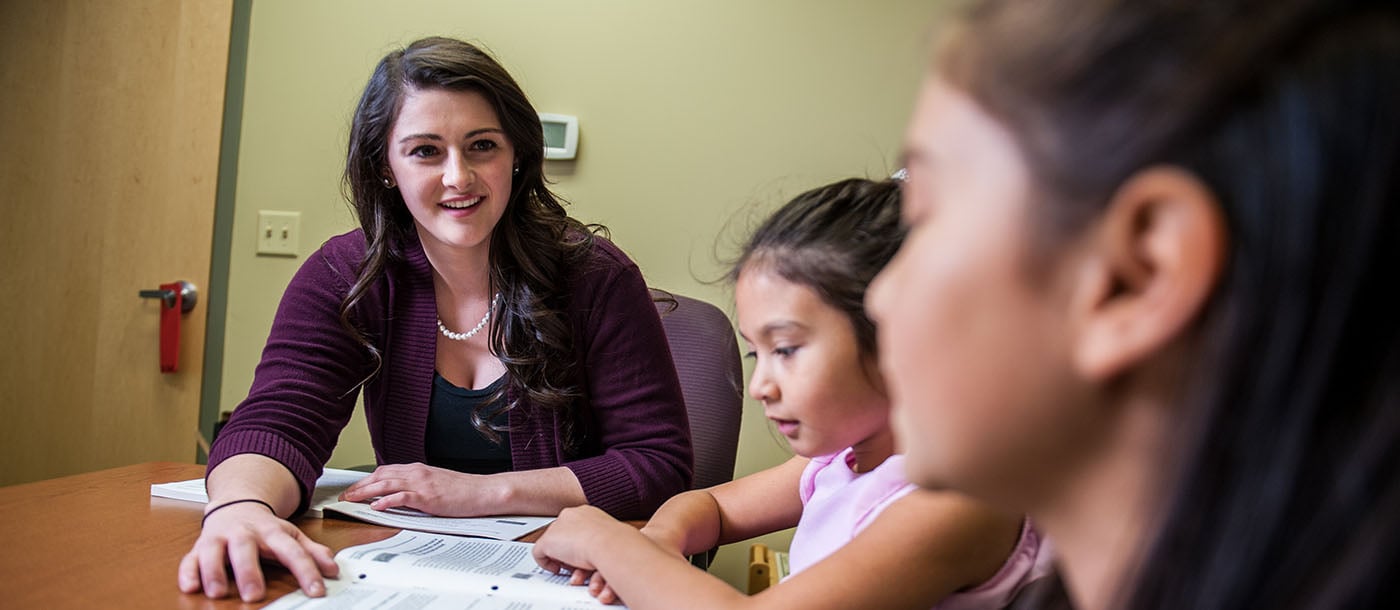Fieldwork

Overview
Professional experiences in the field are a critical component of the School Psychology Doctoral Program. Students document all of their field-based experiences in a professional log. Field experiences begin in the first year of the program.
All field-based placements are managed by the Practicum and Internship Coordinators. Many placements are coordinated in conjunction with the College of Education which manages background checks and formal agreements. Initial placements in field experiences require a clear background check. Background checks need to be updated every 18 months. Students work with the practicum coordinator to complete the background checks in coordination with the College of Education. Adequate progress in coursework and prior field experiences are required before further placements can be made (e.g., students must pass Field Experience I; Problem Solving, Prevention, and Systems in School Psychology; and Cognitive Assessment before taking School Psychology Practicum I and II).
Field Experience (Year 1; 90 hours)
During Problem-Solving, Prevention, and Systems in School Psychology (PSYC 701) and Field Experience I (PSYC 702), students are introduced to a range of topics relevant to school psychology and spend 90 hours in the public school setting (primarily in special education) where they become familiar with common educational practices. Students have the opportunity to practice a few basic skills learned in courses to prepare them for future practicum experiences when they need to actively apply their skills. During this experience, students are supervised by a special education teacher and receive one hour of weekly group supervision on campus from the practicum coordinator.
Practicum (Year 2-4; 460 hours)
The program also has two types of practicum experiences, School Psychology Practicum I and II (3 credits each) and Advanced Doctoral Practicum: Academic Case Study and Advanced Doctoral Practicum II (2 credits each). Students enroll in School Psychology Practicum I and II during the second year of the program and spend 10 hours per week working under a practicing school psychologist in the public schools for a total of 300 hours over the course of the second year of the program. Students have a checklist of required experiences that includes a specific number of assessments, interventions, meetings to attend, and reports to write. University supervision for these experiences is coordinated by the Practicum Coordinator. Students meet weekly to discuss cases and professional development issues. Practica are 150 hours each and advanced practica are 80 hours each. Students enroll in Advanced Doctoral Practicum: Academic Case Study and Advanced Doctoral Practicum II during the third or fourth year of the program. Advanced practica are 80 hours each (i.e., approximately five hours per week). Advanced Doctoral Practicum: Academic Case Study is based on the completion of an academic problem-solving case and Advanced Doctoral Practicum II is based on the professional goals of the student. Students work with the practicum coordinator to secure placements. Examples of placements include mental health clinics, K-12 schools, and state agencies.
Internship (Year 4 or 5; 1500 hours)
Students complete a full-time 1500-hour internship during the fifth year of the program. Students have the option of a 2000-hour internship if they desire. Students have a number of options for completing this internship including appropriately supervised employment by a school district and official APA-approved internships at the national level. NASP requirements for doctoral-level internships are applied. These requirements include, but are not limited to the following: (a) at least 600 hours of the internship must be completed in a school setting, (b) the internship must be supervised by a licensed and/or certified school psychologist, and (c) at least two hours of direct on-site supervision per week. Students work with the Internship Coordinator to identify and secure appropriate placements. For more details, please see the internship manual.

